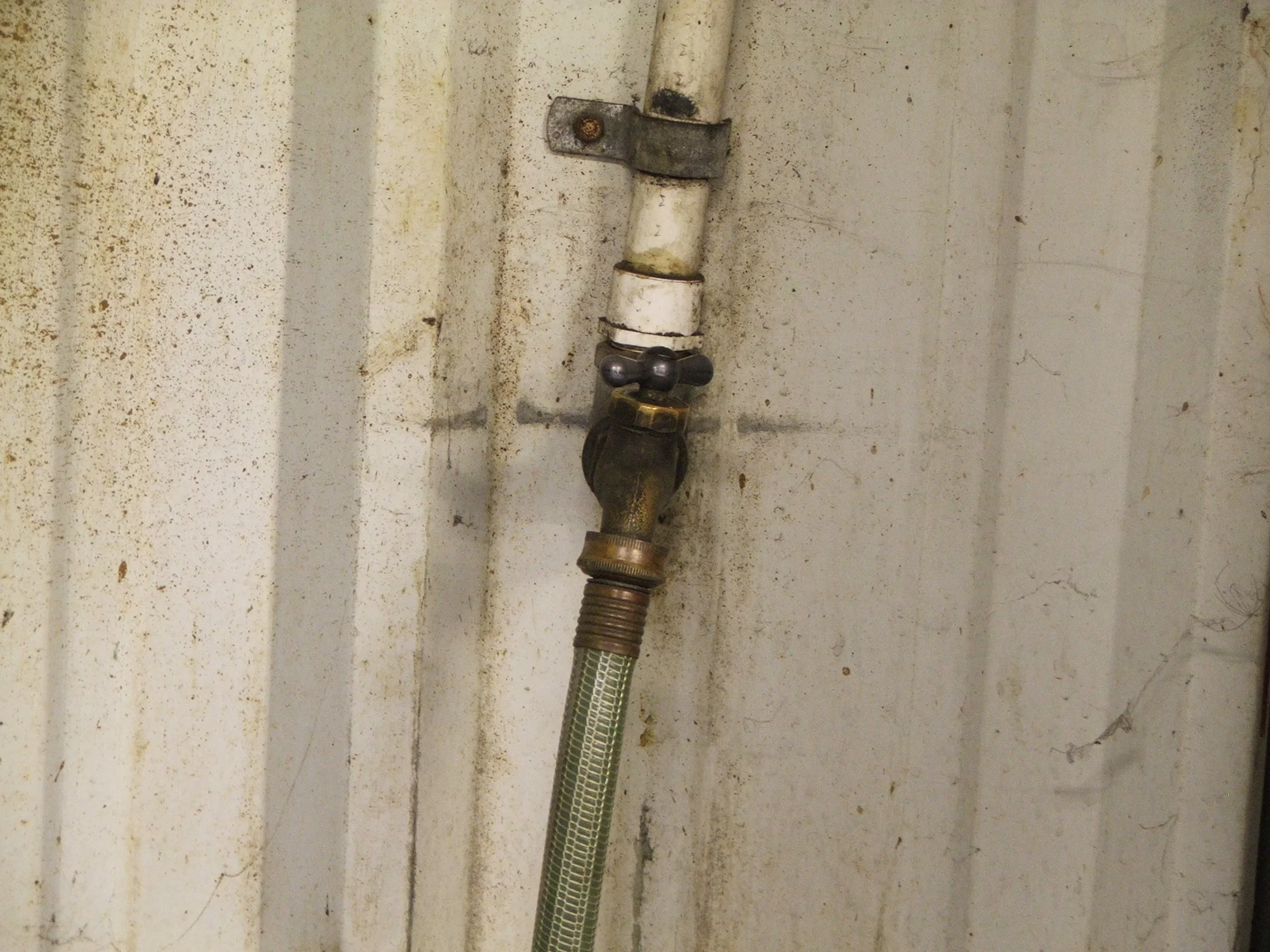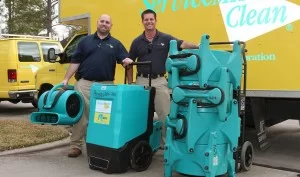A burst pipe is something people usually associate with extremely cold conditions in the middle of winter. As pipes freeze in the cold and then thaw as the temperatures begin to rise, they leak and burst. That’s why people are encouraged to wrap pipes with insulation or heat tape and keep their homes heated, even if they plan to be away for the entire winter. In reality, burst pipes can happen at any time of year, at any time of day or night. It’s not always a pipe that’s easily accessible that breaks; many times pipe bursts takes place inside walls where it can go undetected for days or even weeks.
Non-weather related causes of burst pipes 
There are three main, non-weather related causes of burst pipes:
- Rust: Unless you have a newer home, chances are the pipes are made from cast iron, steel, or even lead. Over time, all of these materials will rust and weaken the pipes, causing them to eventually break. Newer homes have copper and PVC pipes, which resist rust, but it’s cost prohibitive to run new plumbing lines through a home unless necessary.
- Hard water: Water contains a variety of minerals naturally, but an overabundance of magnesium and calcium is referred to as “hard water”. It’s safe to for humans and animals to drink, although the taste might not be pleasant. It’s not safe for your plumbing though; those minerals build up inside your pipes, similar to the way cholesterol builds up in your arteries. Over time, the buildups slow the flow of water and can corrode and weaken pipes. Eventually holes can develop and allow water to leak and cause water damage. One way to limit the damage hard water inflicts on your plumbing is to install a water softener, which removes the calcium and magnesium from the water.
- Poor installation: Like everything else, if the pipes weren’t assembled and installed correctly, it will eventually cause problems. A bad soldering job or loose connections can lead to a pipe bursting, usually at the worst time.
How to prevent pipe bursts
The most obvious sign of a burst pipe is standing water, but there are other clues that can let you know about pipe problems long before you need wading boots. That’s why it’s a good idea to check around your home frequently and look for these telltale signs:
- Stains on walls. Water will leave discolorations on walls and ceilings, so be sure to take action at the first sign of a watermark. This may be the only notice you get for a broken pipe inside a wall until the water soaks through the drywall.
- Discolored water. If the water coming out of your taps is brownish, you may have rust inside the pipes. Rusty water will ruin appliances like water heaters and washers, as well as clothing. It’s difficult to clean people or a home with rusty water and it’s not something to use in cooking or for drinking.
- Lower water pressure. Small holes or leaks in pipes can reduce water pressure in your home. If the pressure drops suddenly, a pipe may have recently sprung a leak.
If you notice any problems with stains on the walls, pipe connections or anything else that might suggest a pipe problem, call a plumber immediately.
What to do if a water pipe bursts
When a water pipe bursts, it’s important to take action immediately to prevent damage to building materials and furnishings, as well as stop the growth of mold. Turn off the water supply to keep more water from coming through the pipes until they can be repaired. If you live in another part of the country for part of the year, it may be worth the money to install a sensor that can detect water levels when you’re not there and send an alert to your computer or phone. Low-cost security cameras allow you to view different parts of a home from your smartphone so you can check on the situation from anywhere. Be sure that your neighbors have a way to access your home and know where the water shutoff valve is located. Precious minutes can be lost when a neighbor can’t get into your home, or can get inside but has no idea how to turn off the water. Setting aside a few minutes to take photos of the water shutoff valve, fuse box, and other emergency shutoffs and sending them to a neighbor or relative who lives nearby can be the difference between a small mess and a major, expensive disaster.

Day or night, whenever you need water damage restoration in Houston, TX, call the industry certified technicians at ServiceMaster Restoration and Cleaning. We know that mold and mildew begin to grow in as little as 24 hours after a water emergency, so we’re on call 24 hours a day, 7 days a week, 365 days a year. We offer free consultations and inspections to help plan the most comprehensive water damage mitigation solution for your situation. Our professionals provide emergency extraction and dehumidification, applications of sanitation and antimicrobial products, moisture monitoring and assessments, and mold remediation, among other services. We’ll work with your insurance company to process your claim as quickly as possible so you can get your life back on track. We can even arrange to store items while your property is being restored.
Water damage restoration costs vary, depending on the extent of the damage. Mold remediation will add to the cost.

